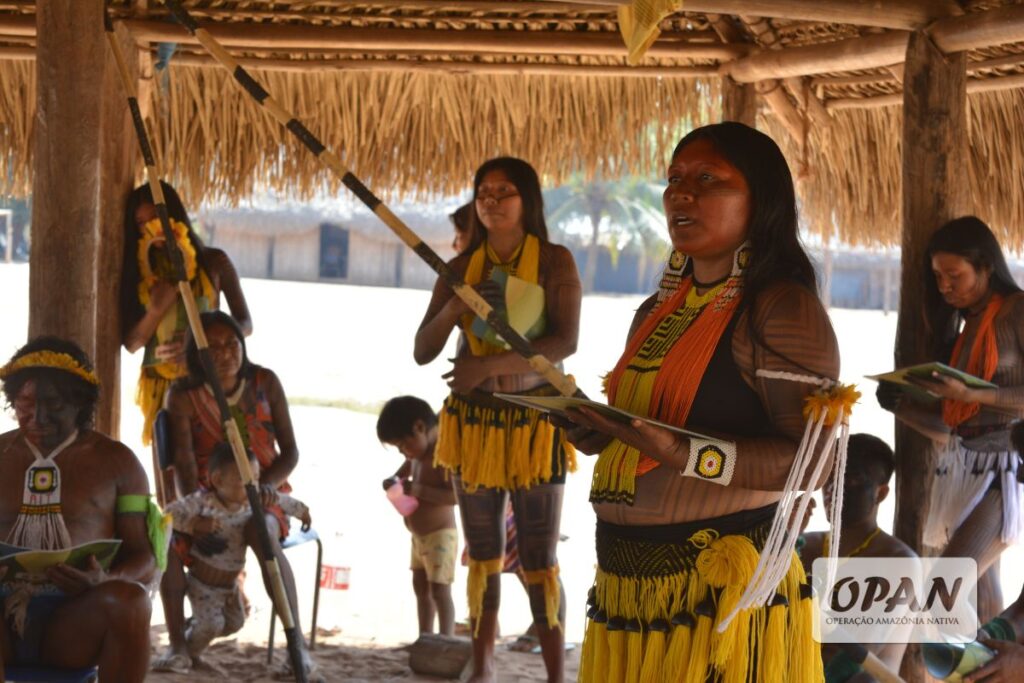Justice for indigenous peoples; IACHR hearing on the military regime’s
The public hearing takes place next Monday (21), upon the request of the organizations of the brazilian
AI generated audio
In an important step forward for the truth, justice and memory, and the inter-American Commission on Human Rights (ICHR) will be held on the following Monday (the 21st) for a public hearing on the violations of the human rights violations committed against indigenous peoples during the period of military dictatorship (1964-1985), and in Brazil.

This is a space before the IACHR is the result of the unification of the various applications are presented by a broad coalition of indigenous organizations, the public defender’s offices, colleges, universities, organizations, and human rights of parliamentarians.
The project aims to provoke the government to publicly recognize the violations inflicted upon to investigate and punish those responsible, granted reparations to, the demarcation of the lands, to fight against racism, structural, and install it on a National Commission on the Indigenous population of the Truth, with the active participation of the affected communities.
In the state of Mato Grosso, between the nations that have been affected by the dictatorship that is the Kajkwakhratxi-Tapayuna, who have traditionally lived on the banks of the river Arinos. They are marked by a history of attempts, the violence of pacification by the serviço de proteção ao Índio (SPI), and, later, by the National Foundation for Indigenous Peoples (Funai).
The records show the poisoning of the mass, in 1953 and again in the late 1960s, in addition to the spread of the flu after the dispatch of the Funai, and in 1969, resulting in numerous deaths. Settlement intensified in the region, fuelled by the policies of federal and state aimed at the development at all costs, driven by the invasion of their territory by the ranchers, miners and loggers, thus leading to conflict and violence.
In the first decade of the 1970’s, the Kajkwakhratxi-Tapayuna, which have survived to the current wave of violence, were forcibly transferred to the national Park of the Xingu river, a move that resulted in the extinction of a formal reservation to the original, in 1976. The demographic impact was immense: out of the approximately 1,200 people, for the people Kajkwakhratxi-Tapayuna estimated to be in 1968, only 41 had arrived in the new area.
In April, a operação Amazônia Nativa (OPAN), in partnership with the Friends of the Earth – Brazilian Amazon (AdT), presented to the un special rapporteur on Truth, Justice, Reparation and Guarantees of Non-Repetition of the Organization of the United Nations (UN), Bernard Duhaime, the document on Human Rights, Indigenous Peoples of the brazilian Military Dictatorship in Brazil,”. This is the material details of the violations suffered by the indigenous people of Mato Grosso state, during the years of military rule.
Now, with the next hearing of the inter-american commission, scheduled for the 21st of July, in the year 2025, it promises to give you even more visibility to these atrocities. It will be discussed in the cases of the emblematic of the violence, those who have reached the Kajkwakhratxi-Tapayuna, in addition to other peoples, such as the Kayabi, Manoki, and Myky that still face the loss of the territorial arising out of the prison.
It is expected that the audience will also push for the Legislative Assembly of the State of Mato Grosso, to finally set up a committee of state for the indigenous population of the truth in order to investigate the violations that have occurred in the state. In spite of the National Truth Commission (CNV), in his report of 2014, which recognizes the impossibility of telling a detailed crimes against the indigenous peoples, because of the vastness and complexity of the violations, and had recommended the establishment of a National Commission on the Indigenous population of the Truth, the recommendation has not come out of the paper.
“The audience for the play of light on to the subject of violations of indigenous peoples ‘ human rights during the military dictatorship in brazil and the State’s need to look at this, the to investigate the crimes that have happened to the people who are residing in the state, so that it will never repeat itself, and that these people can have their rights, repaired, and guarantees of non-repetition of such crimes to justice. In addition to the other remedies in a way that calls for a case-law of the inter-American Court of Human Rights and the recommendations of the inter-American Commission,” said the lawyer of the OPAN, Wind Libardi.
Among the applicants for the audience, they are in the OPAN, the Ombudsman’s office of the General office of the Public Defender, Rio Grande do Sul (DPE)-R), the Association of Advocates, and Advocates for Democracy, the Council of State on Human Rights (‘ECHR’ rio grande do sul), the Service of Legal Assistance to the University (SAJU) of the Federal University of Rio Grande do Sul (UFRGS), a Forum of Justice, Global Justice, the National Council of the ombudsman’s office of the Public defender’s Offices in Brazil (CNODP), the Centro de trabalho Indigenista (CTI) The association for Studies and Projects with Indigenous Peoples and Minorities (AEPIM), the Foundation of the Lutheran-of-Service (FLD), The commission of the Guarani Yvyrupa (CGY), and the Articulation of the Indigenous Peoples of the Region to the South (ArpinSul), a National Network of Lawyers and Attorneys in the Popular (Renap), the Public Defender’s office in the european Union (DPU), and the Articulation of the Indigenous Peoples of Brazil (APIB), the Indigenous Missionary Council (CIMI) to SOUTH), the social-Environmental Institute (ISA), the Center for Justice and International Law (CEJIL), and the members of parliament, as Célia Xakriabá (PSOL MG), Matheus Gomes (PSOL rio grande do sul), Daiana Santos (PCdoB of rio grande do sul)Renato Roseno (PSOL/EC), and Sofia Cavedon (PT-RS).
Click here to take part in the hearing.
